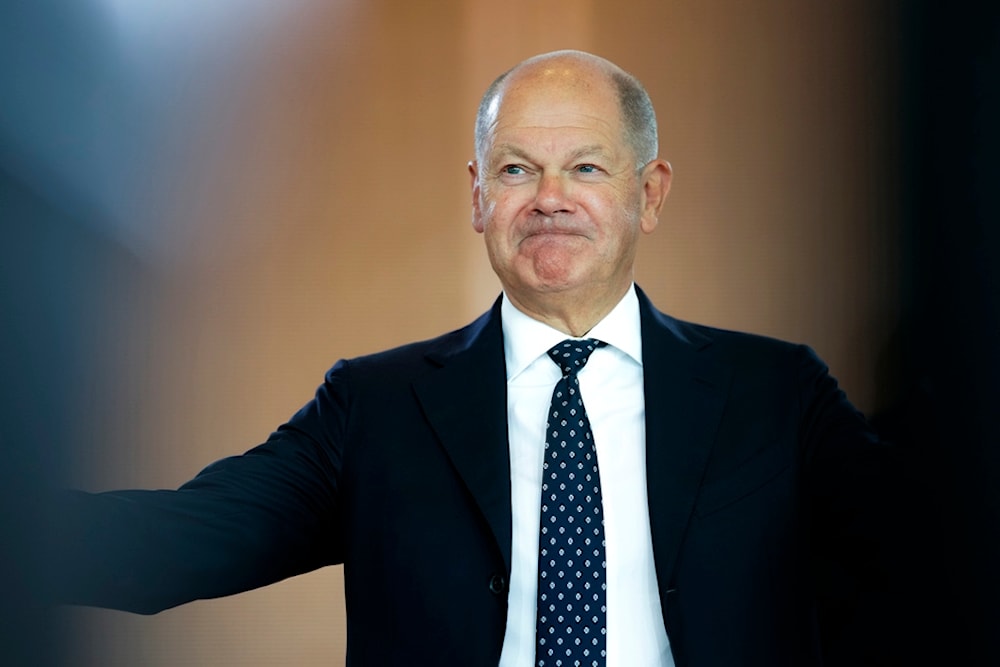85% of Germans dissatisfied with Scholz's government: Poll
The survey revealed that 37% of respondents are somewhat dissatisfied, while 47% are completely dissatisfied with the government's performance.
-

German Chancellor Olaf Scholz leads the cabinet meeting of the German government at the chancellery in Berlin, Germany, Wednesday, Sept. 4, 2024 (AP Photo/Markus Schreiber)
A poll conducted by the Infratest Dimap Institute on Friday revealed that public dissatisfaction with German Chancellor Olaf Scholz's government has hit a record high of 84%.
The survey revealed that 37% of respondents are somewhat dissatisfied, while 47% are completely dissatisfied with the government's performance. Only 16% expressed satisfaction with Scholz's administration.
Dissatisfaction is not limited to opposition party supporters; 63% of voters from Scholz's own Social Democratic Party (SPD) and 54% of the Greens, both part of the ruling coalition, are also unhappy with the government's performance.
ARD-DeutschlandTrend: Zufriedenheit mit Ampel auf neuem Tiefstand, Zuwanderung und Flucht ist drängendstes Thema https://t.co/6ToeSK2OKz #DeutschlandTrend #Sonntagsfrage
— tagesschau Eil (@tagesschau_eil) September 5, 2024
The opposition bloc consisting of the Christian Democratic Union and the Christian Social Union (CDU/CSU) is leading the polls with 33%, followed by the right-wing Alternative for Germany (AfD) at 17%, and Chancellor Olaf Scholz's party (SPD) at 15%.
The Greens garnered 11% in the poll, while the left-wing Sahra Wagenknecht Alliance — Reason and Justice (BSW) party secured 8%.
Both the Left party and the Free Democratic Party (FDP), part of the ruling coalition, are polling below 5%, putting them at risk of missing the threshold to enter parliament in the elections next year.
The poll, conducted between September 3 and 4, surveyed 1,309 people, with a margin of error not exceeding 3 percentage points.
Read more: Local election reflect desire to avoid war: German leftist Wagenknecht
Several factors have contributed to the growing dissatisfaction with Scholz and his government, but the most notable include economic issues, the energy crisis, and the handling of the Ukraine war.
Germany has faced economic challenges, including slow growth, high inflation, and an energy crisis triggered by the war in Ukraine.
Scholz's handling of these issues, particularly the energy transition and cost-of-living concerns, has sparked criticism among Germans.
Another point of contention has been disagreements within his own coalition. Tensions between the parties, particularly on issues like climate policy, defense spending, and fiscal policies, have led to a perception of instability and inefficiency in the government.
The government's climate policies have also been a source of friction, especially with the Greens.

 2 Min Read
2 Min Read








